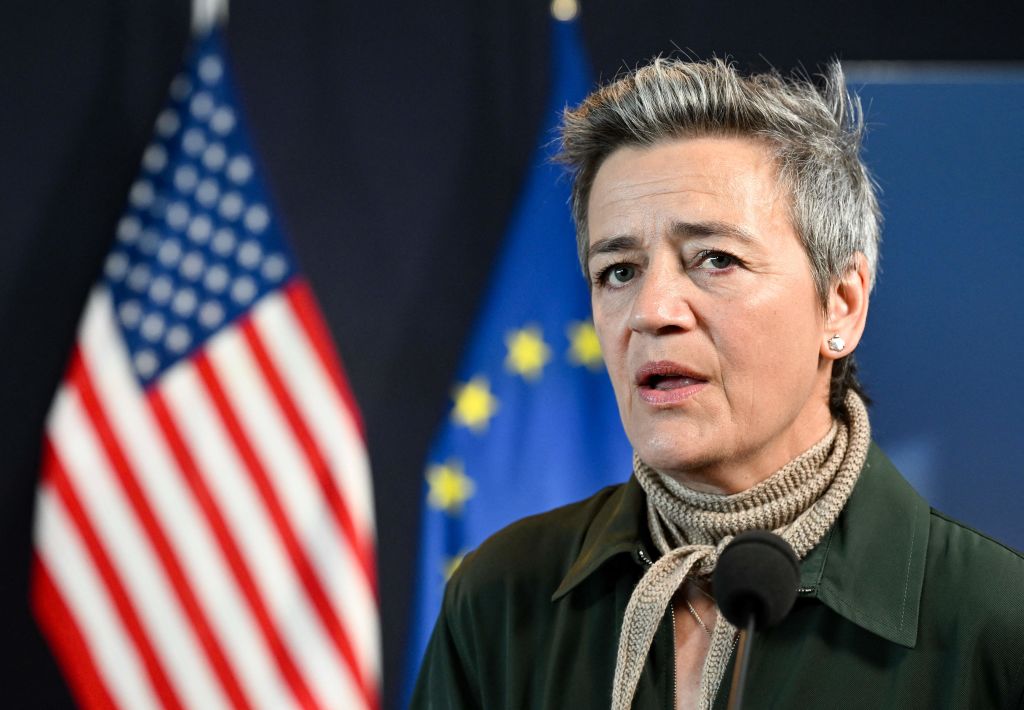The urgency for a comprehensive framework governing artificial intelligence (AI) has reached new heights, as lawmakers from the European Union (EU) and the United States rally to draft a voluntary AI Code of Conduct. With the rapid advancements in AI technology, the need for standards that transcend borders has become a priority. This initiative aims to establish guidelines that will foster responsible AI use while inviting participation from other countries, such as Indonesia and India, to create a truly global approach.
The Foundation of the AI Code of Conduct
During a pivotal meeting of the US-EU Trade and Technology Council (TTC) in Sweden, European Commission Executive Vice President Margrethe Vestager emphasized the necessity of swiftly drafting this Code. Notably, Vestager described generative AI as a “seismic change,” signifying transformative power that requires immediate regulatory attention. The thrust is to develop a code that will serve as a foundation for future AI legislation, embracing a collaborative spirit among nations.
The Role of Stakeholder Engagement
The discussion was enriched by the contributions of key industry figures like Dario Amodei from Anthropic and Brad Smith from Microsoft. They echoed the need for a transcendent partnership that spans both the Atlantic and beyond. As AI technology accelerates faster than ever before, both agencies recognize the vital role that businesses play in shaping responsible practices. The needle must move towards a collaborative environment where stakeholders contribute to developing the regulatory fabric rather than merely reacting to imposed rules.
Balancing Innovation and Safety
- Innovation is Key: With AI sensitive to rapid changes, innovation is crucial for staying ahead.
- Safety Needs Focus: Equally important is finding ways to mitigate risks associated with misuse and data privacy.
Caught between the challenge of ensuring AI safety and not stifling innovation, stakeholders must confront the reality that failures in oversight can lead to significant real-world consequences. This dynamic necessity beckons for a balance, where the Code acts as a guideline rather than an impediment.
Global Participation: A Call to Action
The EU’s invitation for global partners to participate emphasizes inclusivity in devising guidelines. The collective strategy is to make the Code of Conduct a genuine reflection of the needs of diverse countries and cultures. This openness could lead to more comprehensive standards that resonate universally, maximizing technology’s benefits while minimizing its risks.
Beyond Borders: Engaging Non-Western Perspectives
The integration of voices from non-Western countries can further enrich the Code of Conduct efforts. With various regions experiencing their own unique challenges in the AI landscape, the inclusion of diverse perspectives could help formulate an adaptive and scalable framework.
Anticipating Challenges Ahead
Despite the enthusiasm surrounding the Code of Conduct, questions linger regarding compliance. Will the tech giants adhere to these voluntary standards? The inviting nature of the guidelines is juxtaposed with the reality that firms must view these regulations not merely as obligations but as opportunities for demonstrating accountability. With growing public scrutiny, the pressure is on industry leaders to take proactive steps toward embracing this framework.
Addressing Contemporary AI Risks
Industry leaders have acknowledged that AI’s proliferation has raised crucial questions around risks including data privacy breaches, algorithmic bias, and misinformation dissemination. The driving force behind the regulatory conversations should be the commitment to protecting democratic values and the rights of individuals in the face of new technological advances.
A Future Marked by Regulations with Teeth
As policymakers gather momentum, effective legislative measures that exhibit “teeth” need to be prioritized. This entails not only formulating the Code of Conduct but also ensuring its alignment with robust auditing mechanisms, accountability structures, and risk assessment frameworks. The overarching goal is to provide a solid groundwork for AI governance that persists well into the future.
Conclusion: Steering Towards Responsible AI Adoption
The transatlantic collaboration initiating an AI Code of Conduct embodies a promising step in steering technological advancements toward ethical and responsible practices. This framework aims to unify diverse perspectives while encouraging a culture of accountability within AI. As stakeholders from different sectors convene to craft these vital guidelines, the hope is for the AI ecosystem to evolve harmoniously, safeguarding society from potential pitfalls.
At fxis.ai, we believe that such advancements are crucial for the future of AI, as they enable more comprehensive and effective solutions. Our team is continually exploring new methodologies to push the envelope in artificial intelligence, ensuring that our clients benefit from the latest technological innovations.
For more insights, updates, or to collaborate on AI development projects, stay connected with fxis.ai.

